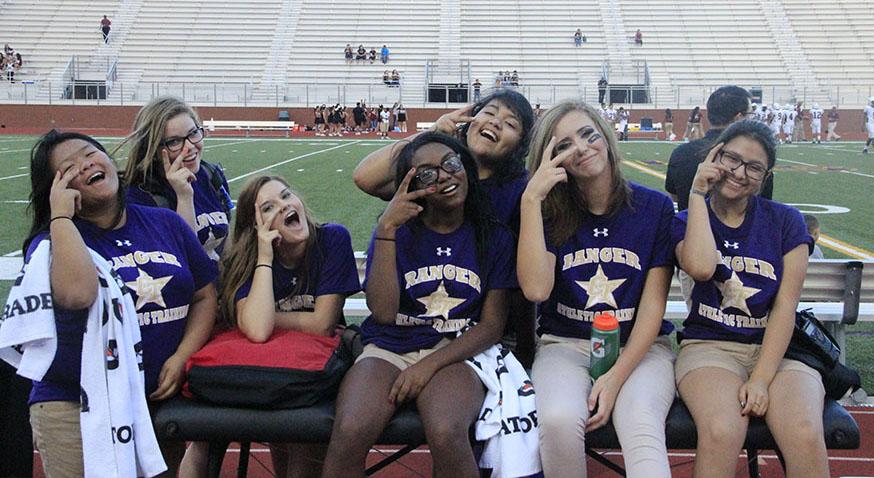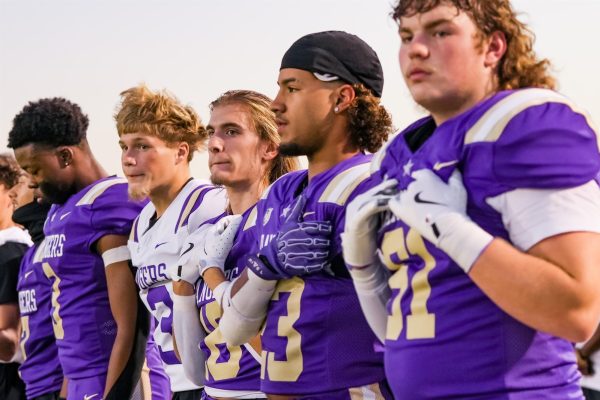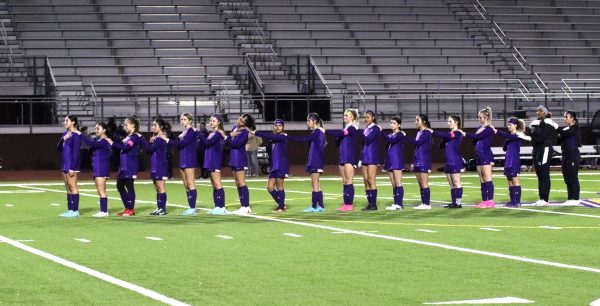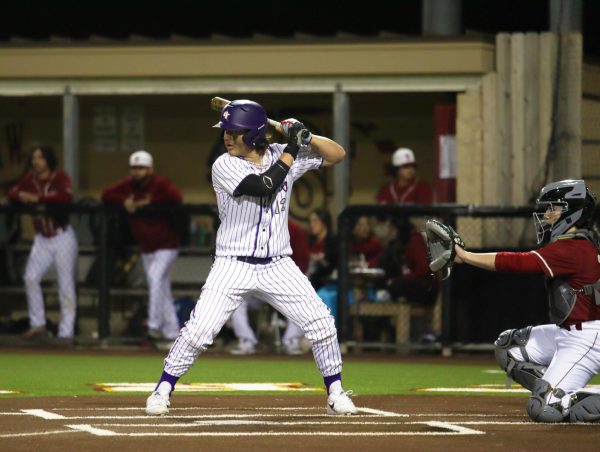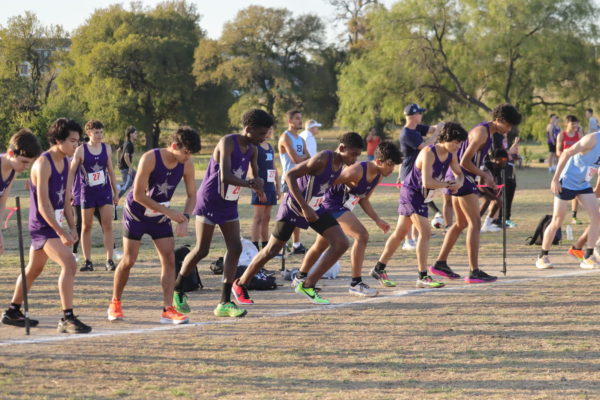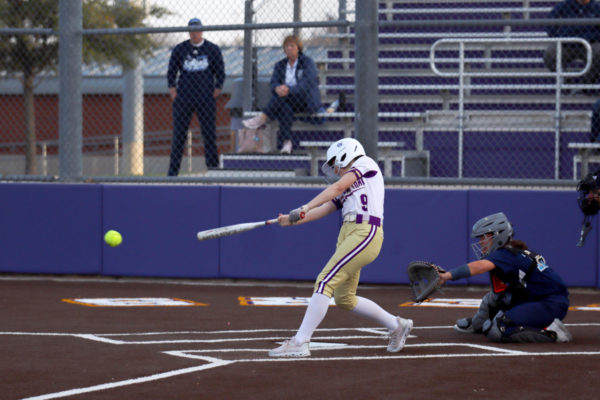‘We’re Not Your Water Girls’
Student Athletic Trainers do more than just fill bottles on the sidelines.
Athletic Trainer Tanner Combs, junior, hears the football players yelling at him from the field. He runs over to find a player sprawled on the ground, his leg twisted. Combs grabs his walkie-talkie and radios Head Athletic Trainer Doc Bass who helps Combs take the player out to the cart.
The two go through several exercises with the athlete to alleviate his pain and twisted ankle.
Trainers accept this situation as a possibility each time they walk onto a court or field.
Between the Gatorade and the gauze, football trainers shadow the head and assistant athletic trainer, clean cuts and come prepared for emergency situations that may arise.
As a volleyball trainer, Junior Rachael Dickey had to tape ankles, wrap wrists, and perform exercise therapy.
With many unaware of all that they do, trainers have to do the job and help others understand it.
Dickey said last year the trainers had to tell the varsity football players what trainers do since it was a new school.
“We had to actually introduce ourselves,” Dickey said. “This year coming in they know us…they know what we’re supposed to do, they know what we’re here to do.”
Although some athletes may not have fully known early on what the training staff was here for, Dickey said the athletes she works with now are good at telling her when they are injured.
“During the games when they come to me they know what to tell me,” Dickey said. “They know to come to me rather than just keeping quiet.”
Like volleyball players, Combs said football players are also good at reporting when they’re injured.
Athletic training isn’t just taking care of athletes, though. The training staff benefits from the job, as well.
Dickey said training has caused her to become more social.
“I find myself being a lot more out there than I was my freshman year,” Dickey said. “You just talk to everyone.”
Dickey, a junior, has been a trainer for two years and has learned to appreciate new sports because of it.
This school year Dickey was one of the few trainers to have volleyball as her assigned sport rather than football.
“Before I started volleyball I was completely football,” Dickey said. “But after the whole season I realized I liked volleyball better because our games ended a bit earlier so I could go to the football games and enjoy them.”
But the trainers have learned more than just new sports and how to interact with athletes.
While last year’s trainers learned on the job, the learning has increased this year with a class period devoted to athletic training.
In the classroom trainers have worksheets and projects just like in other classes. However, during their 6th period Athletic Trainers class, students get CPR certified, learn how to attend to common sports injuries and write game reports that they post to their online blog at http://rangerat.edublogs.org.
Recently the class had to do a project where they created an emergency plan for a particular sport.
“Say I have Tennis and we need an ambulance at the tennis courts,” Combs said. “We need a map for how to get to tennis courts, and who has to call and who is going to be with the athlete in the ambulance.”
Combs and Dickey both agree that anyone considering becoming an Athletic Trainer needs to know the job requires much dedication and time. Dickey said she doesn’t know many trainers who can balance having a job outside of school and training at the same time.
Combs also said a trainer needs to be prepared to use common sense when dealing with injuries. He said if a trainer doesn’t know how to properly handle a situation they should ask for help.
“You can’t really mess up because if you do it’ll look bad on all of us,” Combs said. Most importantly, Dickey said she believes all potential trainers and athletes need to know that trainers take their jobs seriously.
“We’re not just your water girls,” Dickey said. “We’re here to take care of you.”


